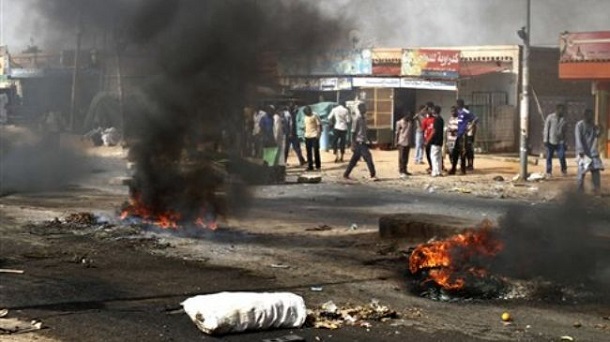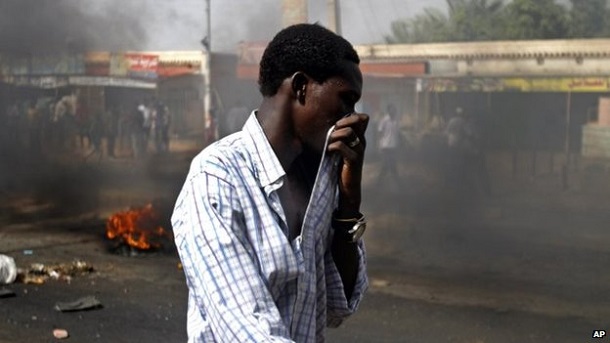The Republic of Sudan was once an oil rich nation until when the country was divided, given almost 75% of the oil to the South.
Reduction is fuel subsidies in July 2012, prompted several weeks of protests and a security crackdown but not as violent and devastating as this current one.
The director of Omdurman hospital told the BBC Focus on Africa Programme his staff had seen 21 bodies in his hospital, adding that 3 others died in a different hospital.
Local reporters say the unrest began on Monday when the government lifted fuel subsidies to raise revenue to finance other developmental sector of the economy.
Security forces fired tear gas to disperse the protesters amid the protesters burning of vehicles in a hotel car park near Khartoum’s international airport, a petrol station in the area was also said to have been set ablaze by protesters.
Protesters were also reported to have stormed and set ablaze the offices of the ruling National Congress Party in Omdurman.
The Sudan Media Centre also quoted Al-Zubair Bashir Taha, the governor of Gezira, south of Khartoum, as saying that aside protesters targeting the National Congress Party office, they also targeted power and gas stations, banks, shops and private property.
Protesters were said to have been shot with live bullets by the police, but police officials denied using live bullets on protesters.
This latest austerity measures by the government have almost doubled fuel prices and hit the poor very hard, angering them to participate in the protest.
But President Omar al-Bashir together with his cabinet has defended the austerity drive, saying the only alternative would be for the economy to collapse without the austerity.
Sudan’s Education Ministry has announced that schools in the capital would remain closed until the end of the month to avoid students’ casualties.
Sudan lost billions of dollars in oil revenues after South Sudan gained independence two years ago, taking with it some 75 percent of crude production of the formerly united country.
The country thereafter has been plagued by running inflation and a weakening currency making the economy very difficult for authorities to handle.
Issaka Adams / NationalTurk Africa News
[adrotate group=”14″]


